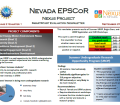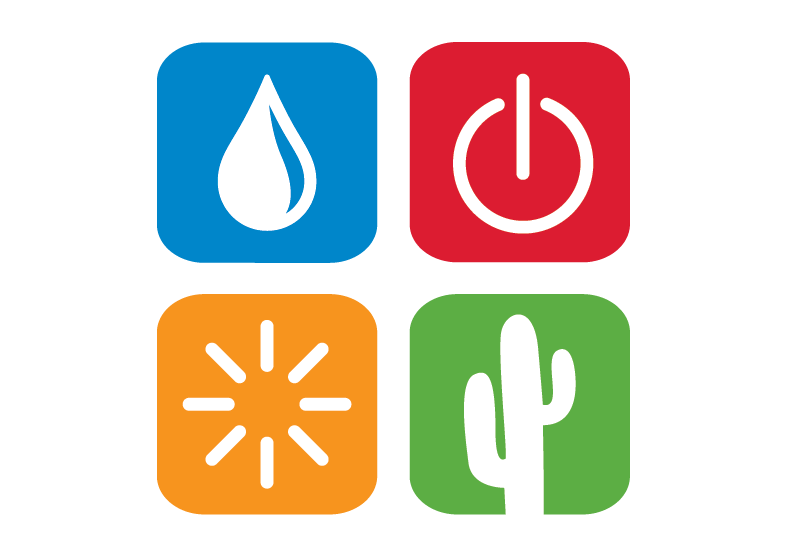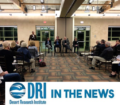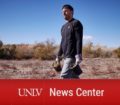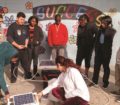FOR IMMEDIATE RELEASE
June 26, 2014
Contact: Tiffannie Bond/Melissa Biernacinski, Imagine Communications, 702-837-8996
Program to introduce high schoolers to STEM career possibilities
Six-week program demystifies science, technology, engineering, math jobs beginning Oct. 16
LAS VEGAS – The Nevada System of Higher Education will host a STEM Careers Investigation Program (SCIP) at 4:30 p.m. every Thursday, Oct. 16 through Nov. 20, to introduce high school students to the very real possibility of pursuing a STEM (science, technology, engineering and math) career.
Estimated to last approximately one-and-a-half hours each Thursday, the six-week program will take place at the Bennett Development Center on the north side of the University of Nevada, Las Vegas campus. An expert in the field from each area of STEM will present each week. Some of the speakers invited include safe drinking water specialists from the Nevada Division of Environmental Protection; a representative from NV Energy; a civil engineer who works in data visualization; a soil scientist; and software developers/game designers from Petroglyph games.
The program is available to all high school students. Those who sign up must plan to attend all six courses. Students may sign up for the program by emailing vallett@unlv.nevada.edu or calling 702-895-4756.
“SCIP was developed to demystify, de-stigmatize and de-stereotype the STEM fields. We hope to expose students to professionals working within specialized areas of science and engineering and help them realize these are attainable careers,” said Jacque Ewing-Taylor, associate director of the Raggio Research Center for STEM Education at the University of Nevada, Reno.
Ewing-Taylor is also the workforce development component lead of the Solar Nexus Project, a five-year research project that aims to help Nevada establish itself as a competitive state in the field of solar nexus research. She created SCIP to meet the workforce development goals of the project.
“The idea of SCIP is to present, informally, the idea of specific STEM careers for high school students that haven’t yet made their collegiate decisions, and hope to catch the interest of some of them,” said David Vallett, PhD, from the Department of Teaching & Learning at UNLV. Vallett will be leading the program in Southern Nevada this fall.
Debuting at the University of Nevada, Reno in February, this is the program’s second session. Thirty-five students – 22 percent of whom were underrepresented minorities and more than 50 percent of whom were female – attended the Northern Nevada spring session. Attendees had the opportunity to engage with different faculty members and learned about various science-related areas including pollen research, robotics, anatomy through dissection, and more.
The academic careers presented are balanced with some from local industry to give a broader perspective on what might be available, as sometimes the prospect of seven to 10 more years of schooling can be daunting to students.
The success of the workshops is gauged using a STEM attitude survey, which – as the name suggests – gauges attitude and interest toward STEM fields before and after the program.
“We as a nation have been swamped with dire news of the United States’ inability to compete in science and math at a global level,” Vallett said. “We’re consistently told we’re losing our edge and have to import STEM professionals. However, if you actually disaggregate that data, you find that our best and brightest are competitive with anyone else on the planet, although they don’t necessarily choose to participate in STEM majors and careers after high school.”
Funded by the National Science Foundation (NSF) Experimental Program to Stimulate Competitive Research (EPSCoR), the Solar Nexus Project supports coordinated research on the nexus of solar energy generation with impacts on water resources and the environment. Its research involves and/or will benefit the following areas: solar power, engineering, diversity, education, cyberinfrastructure, Nevada economic development and diversification and workforce development, data collection, connectivity, software tools to help scientists, students and decision-makers.
The Solar Nexus Project’s main administration is located in the NSHE System Sponsored Programs Office/EPSCoR Office at 5550 W. Flamingo Road, Suite A2. For more information on the project, visit solarnexus.epscorspo.nevada.edu, email nshespo@nshe.nevada.edu or call 702-522-7070.
# # # # #
Downloadable PDF

